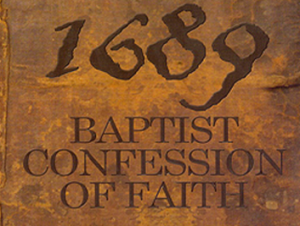39 Now as the king passed by, he cried out to the king and said, “Your servant went out into the midst of the battle; and there, a man came over and brought a man to me, and said, ‘Guard this man; if by any means he is missing, your life shall be for his life, or else you shall pay a talent of silver.’ 40 While your servant was busy here and there, he was gone.” Then the king of Israel said to him, “So shall your judgment be; you yourself have decided it.” 41 And he hastened to take the bandage away from his eyes; and the king of Israel recognized him as one of the prophets. 42 Then he said to him, “Thus says the LORD: ‘Because you have let slip out of your hand a man whom I appointed to utter destruction, therefore your life shall go for his life, and your people for his people.’ ” 43 So the king of Israel went to his house sullen and displeased, and came to Samaria. (1 Kings 20:39-43, NKJV)
In my continued reading of 1 Kings, I again came across something that struck me. In the above verses, it is revealed that Ahab (King of the Northern Kingdom of Israel) unwittingly made pronouncement of his own demise.
Even though he had just won a battle against the rival king of Syria, by the hand of God, he displays just how twisted his heart truly is. Ahab is merciful toward the pagan king who had sought his destruction, yet he is indifferent and unmerciful toward this servant (prophet) who had fought for Ahab, himself.
After reading this passage, I immediately was reminded of Matthew chapter 7:
1 “Judge not, that you be not judged. 2 For with what judgment you judge, you will be judged; and with the measure you use, it will be measured back to you. 3 And why do you look at the speck in your brother’s eye, but do not consider the plank in your own eye? (Matthew 7:1-3, NKJV)
As well as…
37 For by your words you will be justified, and by your words you will be condemned. (Matthew 12:37, NKJV)
The verses just before this one, the Lord Jesus gives us the reason this is so,
33 “Either make the tree good and its fruit good, or else make the tree bad and its fruit bad; for a tree is known by its fruit. 34 Brood of vipers! How can you, being evil, speak good things? For out of the abundance of the heart the mouth speaks. 35 A good man out of the good treasure of his heart brings forth good things, and an evil man out of the evil treasure brings forth evil things. (Matthew 12:33-35, NKJV)
I believe it serves to show the condition of Ahab’s heart. Verse 43 of 1 Kings chapter 20 says “So the king of Israel went to his house sullen and displeased, and came to Samaria.” It shows that Ahab had no sorrow or repentance within his heart, but only contempt for God.
Is Matthew 7:1-3 meant to keep Christians from reproving, rebuking, and discerning each others sinful actions? I do not believe this is the intent. After all, in verse 33 the Lord does say “a tree is known by its fruit”. Also, Paul in 1 Corinthians chapter 5 urges the church to exercise church discipline in a certain matter. In order to do the same, individuals of the church would be required to engage in discernment, reproof, and rebuke of the guilty party.
So what could be the meaning of this…?
I believe, that when we are placed into such a situation we must remain humble and merciful, with Christ always in mind. That we must reflect upon and examine ourselves, to be sure we are not guilty of the same, or even worse sin. That we must seek to correct our brothers and sisters, in a spirit of love, grace, and restoration. And not seek to condemn, out of a spirit that inherently looks to elevate oneself at the expense of another. For if we do engage in such judging, then we should truly fear God. For if that is the measure one uses… How will one fare when that measure is taken from out of your hand, by He who is perfect, and applied to you?
Soli Deo Gloria




